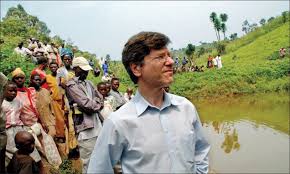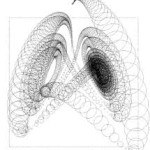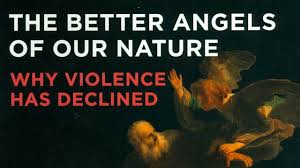–30something female expat aid worker respondent w/ 10+ years experience
“There’s a reason all this professional jargon exists. It obfuscates the fact that at the end of the day most aid work doesn’t do much of anything.”–mid 30’s male expat aid worker with 5+ years experience
“Something an old man told me in West Africa struck me. We were at a big conference on sanitation, and the guy stood up and said ’20 years ago I was at a similar conference where we discussed exactly the same issues, with exact same solutions. Now 20 years later we are still discussing the same things.'”
–mid 30’s female HQ worker
More on building castles in the sand and on The Idealist: Jeffery Sachs and the Quest to End Poverty
A couple weeks ago I posted about our survey results regarding the idealism of aid workers. Having just finished Nina Munk’s book The Idealist: Jeffery Sachs and the Quest to End Poverty (2013) I have a few thoughts I’d like to expand on that I began presenting in the  ‘castles in the sand’ post.
‘castles in the sand’ post.
I’ll start by saying that Sachs got it right, finally. “It is what it is,” he says in last pages of the book in response to Munk’s hard questions about difficulties encountered related to the Millennium Villages Project. The realization that he finally comes to -or reawakens to- is that everything is connected to everything else environmentally, politically and perhaps most importantly, economically both locally and globally. He says exactly that to Munk at the end off the book, “For a long time, I wanted to simplify the problems by putting aside the rich world’s issues and so forth and focusing on extreme poverty. But it’s all interconnected.” I am reminded of the statement from the anthropologist Miles Richardson that, “…the problem of the poor is not the problem, the problem is the rich.”
His team’s 147 page Millennium Villages Handbook used in the select villages in Africa reported on by Munk and elsewhere was, in a very real sense, the guide to put into place the prescription he expounds in his The End of Poverty (2005), his vision -some say promise- to eradicate extreme poverty by the year 2025.
The Millennium Villages Project did the world a great, sobering favor in that it gave perhaps our (i.e.,more specifically, the Western, ‘scientific’) world’s best shot at trying to solve the problem of the poor and came up, predictably, short. Not because we didn’t try hard enough, but because the assumption is failed.
Certainly if we were listening to history we should have learned this lesson many times over. In his Doing Bad by Doing Good: Why Humanitarian Action Fails Christopher Coyne outlines in good detail the failed Kajaki dam project in the Helmand Valley Province in Afghanastan, calling it a “planners problem.” His alternative, a rehash of William Easterly’s arguing points in The White Man’s Burden: Why the West’s Efforts to Aid the Rest have Done So Much Ill and So Little Good (2006), is the so-called ‘constrained approach’, not much more than a repackaging of Easterly’s ‘seekers’ idea. Both argue this general ‘bottom-up’ approach will have a better chance of success making lasting change.
Coyne argues perhaps the obvious, i.e., that knowledge of the local culture is imperative for development work. He posits, correctly I believe, that “…[we need to appreciate] endogenous rules because existing rules place a constraint on efforts to design and implement what are perceived to be potentially superior formal rules” and further that “…attempting to impose formal rules that are at odds with underlying informal rules is akin too banging a square peg into a round hole–it can be done, but only with significant force and collateral damage.” Agreed. But we’re still in the weeds here talking about how to engineer sand castles.
Both Easterly and Coyne find support from Dead Aid: Why Aid Is Not Working and How There Is a Better Way for Africa (2009) by Dambisa Moyo and of course Easterly continues to beat the same drum in his recent offering The Tyranny of Experts: Economists, Dictators, and the Forgotten Rights of the Poor (2014). I am reviewing my notes on this book now and will have more to say in a later post.
Easterly, for his part, argues very articulately for the position that by encouraging the rich and simultaneous exploration by many creative people -poor people- for useful and effective solutions to human problems we will all be the better for it. For my money, the Easterly/Coyne/Moyo (et al) arguments sound way too close to the neoliberal rhetoric washing around for the last several decades arguing that the poor just need to be given their rights and respect and they will solve the problem themselves or, rather, the forces of the market will make this happen and the efforts of the rich and newly rich(er) will ‘trickle down’ like so much sweet rain.
The Invisible Hand, in my view, tends to slap the poor and pat the back of the rich. Just sayin’.
We are not in charge of how the future will unfold, nor can we ever be.
the future will unfold, nor can we ever be.
Is there something/someone else at the driver’s seat? No, I will not go all InshAllah on you here: the future is not in Allah’s hands nor any other God or gods hands, however much we would like to believe that. If there were a loving God she would not allow the absolute horror that visits upon billions every day, especially the bottom 2 billion that are the focus of much aid and development work. That’s my opinion.
It is what it is: an unfolding of what may be best described as a set of incomprehensibly numerous and complex algorithms perhaps the two most important of which are biological evolution and capitalism. The future will become what it becomes not because of what we -or those like Sachs, Gates, Easterly, Soros and others- want it to become but rather in spite of what we what we would like it to become.
To be clear, these fine folks, Easterly, Sachs and the rest are all basing their actions and arguments on one very flawed and hubristic anthropocentric assumption, namely that we are in control of how the global culture unfolds.
There are those who will point to the many human interventions over the centuries that appear to affirm the human capacity to control our civilization. My counter to these examples is that, yes, you can -and as I said in the last post, we must- build castles in the sand, and some of these castles will be magnificent indeed. But nonetheless these are more testaments to human will than true ‘directing the unfolding of human history’ moments.
In the final pages of Munk’s book she talks about the challenging social and economic changes occurring all over Africa that raise a very important question about the efficacy of the MDV’s project, namely would much of the change that happened in the target  villages occur even despite the massive intervention? The answer, quite likely, is yes. That is, change in spite, not because.
villages occur even despite the massive intervention? The answer, quite likely, is yes. That is, change in spite, not because.
I find good support for my position in Steven Pinker’s 2011 book The Better Angels of Our Nature: Why Violence Has Declined in which he details the very counterintuitive argument that humanity is getting less violent over the centuries.
I disagree with what one respondent said when reflecting on the future of humanitarian aid “Human beings, we are not good.” Humanity is getting more humane in some ways as social institutions slowly evolve to tamp down our more violent tendencies and see ourselves more and more as one humanity. Sociologist GH Mead encouraged up to look forward to a time when we would have all humanity as our reference group, our ‘generalized other’ not just those in our immediate clan.
Can we impact this or that specific life with our actions? Of course. In fact that is what aid and development workers do every day of every year all over the world. Is that impact scalable, the kind that can ‘end poverty’? That indeed is the question I am attempting to address. I would say ‘yes’ in the short term we can create that appearance, but on a global scale not so much.
The problem of the poor will always be with us, I am afraid.
That’s my story and I’m sticking to it.
Email your thoughts and comment to me.
Post Script thoughts
 “There are no nations. There are no peoples. There are no Russians. There are no Arabs. There are no third worlds. There is no West. There is only one holistic system of systems, one vast and immane, interwoven, interacting, multivariate, multinational dominion of dollars. … It is the international system of currency which determines the totality of life on this planet. That is the natural order of things today.”
“There are no nations. There are no peoples. There are no Russians. There are no Arabs. There are no third worlds. There is no West. There is only one holistic system of systems, one vast and immane, interwoven, interacting, multivariate, multinational dominion of dollars. … It is the international system of currency which determines the totality of life on this planet. That is the natural order of things today.”
Jensen lectures poor Howard Beale further…
“There is no America. There is no democracy. There is only IBM, and ITT, and AT&T, and DuPont, Dow, Union Carbide, and Exxon. Those are the nations of the world today. What do you think the Russians talk about in their councils of state, Karl Marx? They get out their linear programming charts, statistical decision theories, minimax solutions, and compute the price-cost probabilities of their transactions and investments, just like we do. We no longer live in a world of nations and ideologies, Mr. Beale. The world is a college of corporations, inexorably determined by the immutable bylaws of business.”
I am not entirely sure Arthur Jensen/Peter Finch got it wrong back in 1976 in Network when describing the nature of global capitalism.


 Follow
Follow